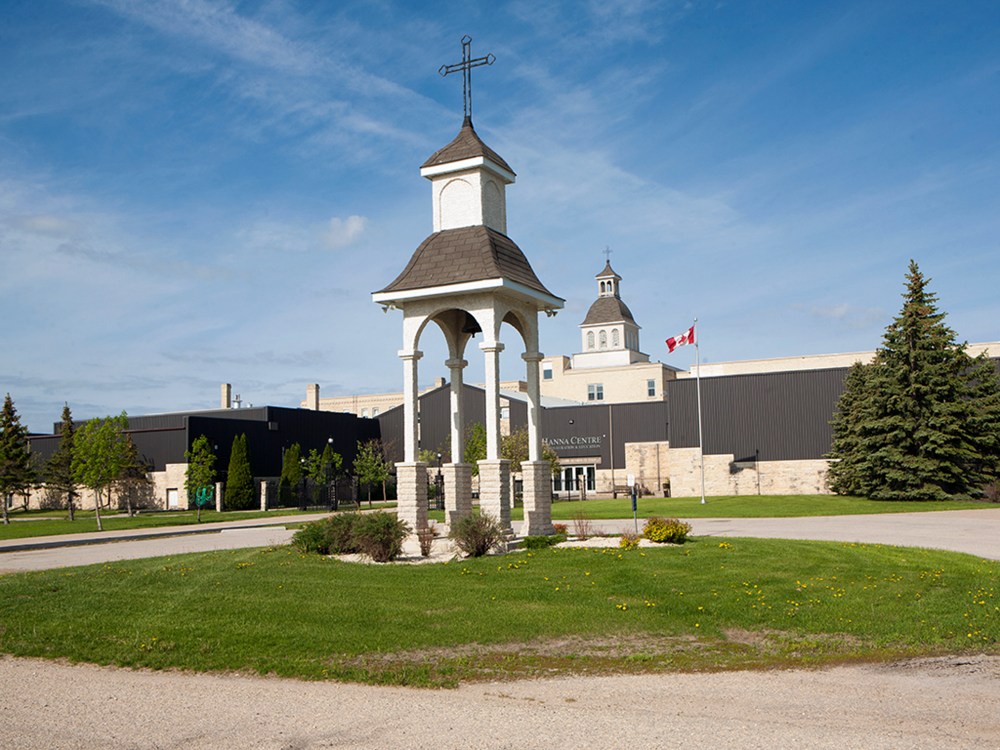Providence sells building and cuts courses as international student attendance falls
Advertisement
Providence University College and Theological Seminary has sold its Winnipeg building and slashed courses following the federal government’s cutbacks to international student permits.
The Otterburne-based post-secondary institution received 130 provincial attestation letters for international students this year, a nearly 90 percent drop, said provost Nicholas Greco. The letters are granted to international students who apply for programs so they can begin the student visa process.
But those letters don’t translate directly to 130 students, with roughly half of applicants being approved, he said. The college purchased a building at 447 Webb Place in downtown Winnipeg to offer specialized undergraduate and masters degree programs in 2022. Since it began, the college has had up to 1,000 students annually.

“We’re anticipating, with the number of provincial attestations we received that we will be down to almost zero students by next year in our downtown program,” he said.
Because of the decrease in numbers, the college sold the property in January and now rents a building on William Avenue. Greco said the property was worth $10 million.
Providence also cancelled its associated arts and business program that was run in the downtown facility.
A portion of the 130 letters have already been reserved for recruiting athletes for the college’s various teams. The rest has been dedicated for the school’s master of management program, which primarily serves international students at the rented building, Greco said.
The school has asked for 600 more letters in total during the last three quarterly reports to the province, but only received 10.
The federal government capped the number of international student permits granted in 2024, reducing the approved permits nationally by nearly 40 percent. The measure was created to “ease the strain on housing, health care and other services,” a Jan. 24 Immigration, Refugees and Citizenship Canada press release said.
It also required provincial attestation letters be included in study permit applications.
The federal government allocated 550,162 letters across all provinces and territories for 2025. Manitoba received 18,602.
The province developed a distribution plan for the letters that prioritized public institutions and high demand programs that meet Manitoba’s labour needs, a provincial spokesperson said in a statement.
“The province is continuing to advocate to the federal government while working with institutional partners and will consider further allocations as more information is available,” the spokesperson said.
Reducing the amount of international students at Providence would be a “major loss” for Winnipeg and the province, said its president Kenton Anderson.
“They work hard, they are energetic and enthusiastic and we’re really proud of what we have been able to offer through that program as we’ve been preparing people to be useful and effective in the Manitoba economy,” he said.
The province didn’t ask for the burden of allocating the letters, and it’s fair they would prioritize publicly funded schools, he said.
But Providence is concerned that not all of the letters will be used at other institutions and end up wasted, Anderson added. He’s hoping the province will redirect some of the unused letters to other schools.
Anderson called the federal government’s decision to cap international student permits “short sighted” and not designed to achieve the best results for Canada.
“I can appreciate why they (the federal government) felt they needed to do something, but they kind of hit it with a blunt instrument, and we all got hit in the same way,” he said
To offset the loss of international students, Anderson said Providence is exploring ways to teach hybrid courses in other countries, but didn’t say which ones those would be. He also hopes to develop more agricultural programs and partner with local employers to offer staff development courses.
“If the doors are closing for us to bring students to Canada or certainly become more restricted, we’re looking for ways that we can serve these people in their home countries,” he said. “Providence, from the very beginning, has had an interest in reaching the world, and so we’re looking at ways to do that.”
